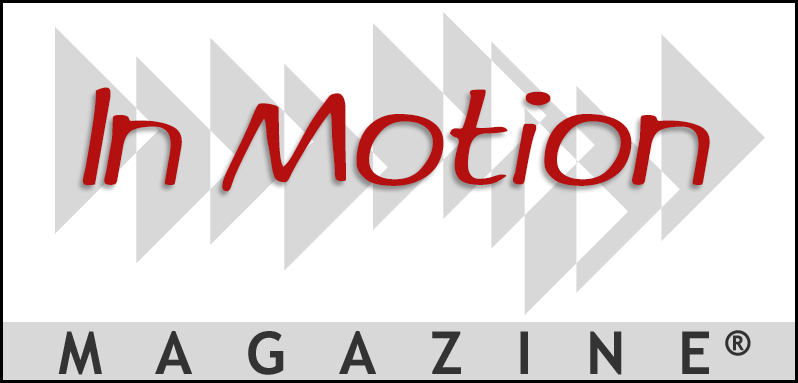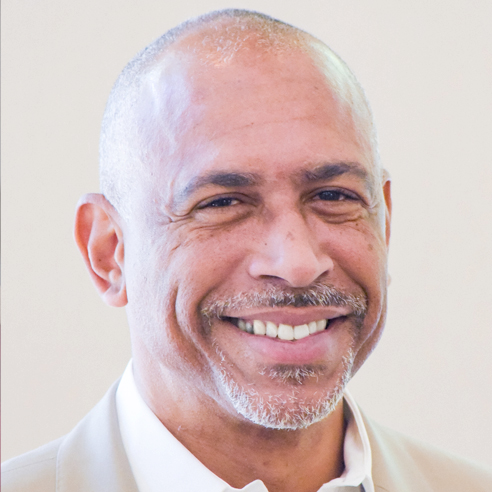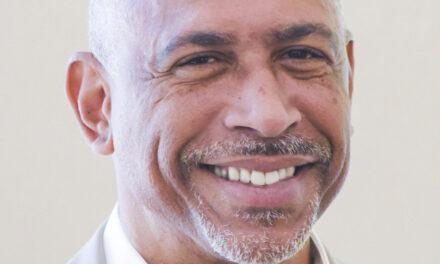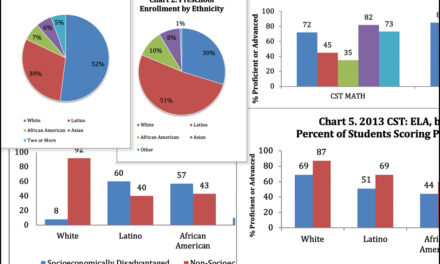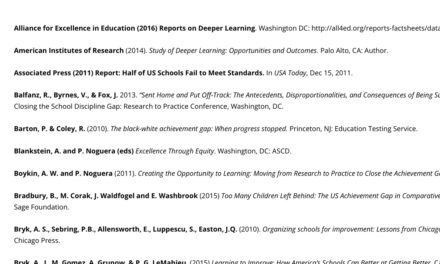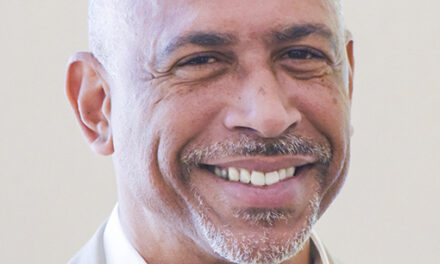EDUCATION RIGHTS
Lessons From My Cancer Journey
“I was unprepared for being sick, and I refused to embrace my new identity as a cancer patient.”
Pedro Noguera, PhD
Dean, Rossier School of Education
Distinguished Professor of Education
University of Southern California
November 25, 2023
My cancer was a harsh and severe teacher; unmerciful, unkind and unrelenting. Early on I realized that the metaphor of a war or battle didn’t capture what I was experiencing. After being diagnosed with head and neck cancer in February of 2021 and overcoming the shock of what was in store for me, I realized that I had embarked on a journey, one that I hadn’t planned on taking.
I soon learned that this journey would be arduous, comprised of hazardous twists and turns, and lessons that I hadn’t expected or thought that I needed to learn. I also learned that my cancer was also going to be my teacher, and “it” had no regard for students who displayed a reluctance to learn, and no regard for whether or not I grew tired from the difficult journey as it unfolded.
I’ve written this blog about my experience because I think others can benefit from the lessons I’ve learned. I think these lessons are especially important for men. Like me, most men are socialized to be stoics: to tough it out when things are hard, to not ask for help even when we desperately need it, to not seek medical help even when the signs of trouble are clear. As you will see from these essays, I learned to reject stoicism and to embrace my vulnerability.
I came to think of my cancer as a teacher, one who was a lot like my freshman philosophy professor, Dr. Archambault. He was the quintessential New England Ivy League professor: tweed jacket, wire rimmed glasses, with a dour expression of judgment etched permanently onto his unfriendly face. Never warm or friendly, he was consistently stern and serious. He approached his teaching and his students as if he were administering a form of punishment in each lecture, and he did so without a hint of compassion. Dr. Archambault enjoyed utilizing the Socratic method when teaching his class. He took special delight in cold-calling students, especially those who appeared distracted or unprepared. He did not care if his pointed, yet thoughtful questions left an uncertain or unprepared student embarrassed or ashamed. In fact, that was the point of the questioning. Whether you were prepared, sleepy, distracted or not, he was there to deliver a set of lessons through a series of probing questions that pushed us to think in ways our young minds were often not ready for.
I found that my cancer lessons were a lot like my experience with Professor Archambault, except I hadn’t chosen to take the course. For some reason, I was required to take this journey, and compelled to learn the lessons along the way. Like Dr. Archambault, my cancer teacher had no patience for unprepared students.
“Why me?” I thought as my cancer journey commenced. I soon came to realize how stupid the question was. My cancer teacher could care less if I felt sorry for myself or if I thought having this disease was unfair. There would be no time for wallowing in self-pity on my cancer journey, and the lessons I would be forced to learn along the way would be taught without patience or compassion. My first lesson was that “why me” was the wrong question to ask.
In her book, Illness as Metaphor (1978), Susan Sontag says: ‘Everyone who is born holds dual citizenship, in the kingdom of the well and in the kingdom of the sick. Although we all prefer to use the good passport, sooner or later each of us is obliged, at least for a spell, to identify ourselves as citizens of that other place.’
When I was diagnosed with cancer in February of 2021, I began my journey to the kingdom of the sick. My hope was that I would merely be a tourist passing through, unlike others I had known who became permanent residents in that horrid and unforgiving land. According to the Centers for Disease Control and Prevention, six in every 10 adults in the United States have a chronic disease. Four in 10 have two illnesses or more. I had no desire to become a member of this sickly tribe but here I was.
My second lesson came quickly: cancer doesn’t wait for you to be ready. At the time of my appointment with an ENT (ear, nose and throat, aka otolaryngologist) specialist, Dr. Swanson I learned that the biopsy of the lump on my neck could be cancer. When I went in to see Dr. Swanson, I was tense, bracing myself for bad news, and trying hard to appear unafraid. I sat up straight on a stool, ready to face the verdict, but still hoped that the lump on my neck might be benign; nothing more than a swollen lymph node caused by an infection.
Dr. Swanson dispassionately conveyed his prognosis “Yes, it’s cancer.” I sighed heavily with a profound sense of resignation. Younger than me, but confident and highly competent, he detailed his diagnosis in technocratic monotone. “Squamous cell carcinoma, manifest in the lymph nodes of the neck and the back of the tongue. It’s an HPV cancer, commonly found in men. Fortunately, it is very treatable. “
He didn’t seem to care if his words were reassuring. He was a medical specialist, trained in treating conditions like mine. I feigned stoic toughness, but his words caused my head to spin, and my knees to shake. I had an HPV cancer – human papillomavirus; a sexually transmitted disease. I immediately started thinking who I might have contracted it from. “It has probably been dormant inside of you for many years” he shared, “and it doesn’t really matter how you got it. The important thing is to get it treated.”
I still can’t remember much of what he said during my first visit as he explained the course of treatment he would prescribe. The fact that I had “cancer” was still sinking in. I needed to process what it meant for me. Instead of focusing on what or who might have caused it, I immediately started thinking about how my illness would make it difficult for me to perform the duties of my new job. But the young doctor was in a hurry. He didn’t give me any time to take in the news or even ask questions. Instead, with technical precision he proceeded to send his scope, a tiny camera attached to a long tube, up my nose and down my throat, causing me to gag. Without an ounce of emotion, he announced yet again, “Yes, it’s definitely cancer, and we need to act quickly.”
The Journey Begins
After he withdrew the scope, I began to absorb the news he had shared. He didn’t seem to notice or care that his words had hit me like a punch to the gut, or that tears had welled up in my eyes. “You will need surgery to have the cancer cells removed, followed by radiation and chemotherapy. I suggest that we schedule surgery immediately.”
His words and the plan he laid out were unnerving. In three weeks, I would have surgery on my neck, followed by seven weeks of radiation and chemotherapy. He didn’t care if his plan for my treatment weren’t in my plans. I had just started a new job, one that placed me in responsibility for the work and education of hundreds of faculty, staff and students. I had a family: five kids, five grandkids, a wife/partner, an aging mother, five siblings, dozens of nieces and nephews, and many dear friends, all of whom relied on me to varying degrees. Would I share the news with them, or would I keep my cancer and the news that I was embarking on an unexpected cancer journey to myself?
I had never been a sickly person, but cancer was no stranger to me. Over the years, I had developed an intimate relationship with cancer, but in my previous encounters, I had been nothing more than a bystander, a voyeur, and an intimate but detached observer. I had seen others on their cancer journey, and I had watched, supported and cried with them as it slowly took them down. But, it was their cancer journey, not mine. For that reason this felt different. I knew from watching, listening and observing how unforgiving the lessons of a cancer journey could be, but the journey I was about to take was still a mystery to me. In each previous case, the cancer teacher was there for a friend, a relative, a mentor, and eventually, a wife, but not me. I was close enough to know that the experience could be harsh, but I also knew the lessons on the journey weren’t mine. Still, my past proximity taught me enough to know that this teacher didn’t play.
Despite hearing that my cancer was treatable, I suspected that the journey I was about to take would be harsh and difficult. My suspicions were affirmed by a nurse the doctor sent in to speak to my wife and me, on my second visit. Unlike the doctor, she was compassionate and warm. A middle-aged Latina, she evoked deep empathy, but she was also stern and unequivocal. “This is going to be very difficult. Your treatment will be aggressive and intense, but you can do this. You are young and healthy. You have a wife to support you. This will be very hard, but you can do this. You will be okay, eventually.”
Her words were meant to be reassuring, but with her humane and heartfelt delivery, they were even more disturbing than the doctor’s. Tears came to my eyes and to my wife’s, and she doesn’t cry very often. She began to cry, and we embraced. We now knew that I/we would be in for a rough ride. Unlike my past encounters with cancer, this time I was the patient and the traveler, and whether I was ready or not, the journey had begun and the lessons on this voyage were for me.
Part of the reason why I was caught off guard is because I was immersed in my work, and I hadn’t been in any pain or discomfort. In fact, if I hadn’t been on a series of zoom calls which often resulted in me looking at my face far more closely than I typically do, I might not have noticed the lump on my neck. After we heard from the nurse, I retreated to the bathroom where I could take in the news by myself, wash my face and dry my eyes. When I returned to the room where my wife and the nurse were still talking, I said nothing. I was in shock, and I had nothing to say. My mind drifted toward self-pity as I pondered the news, and realized that I now knew the answer to my own question. “Why me?”
Having lost a close friend and my first wife to this deadly disease, I knew that my diagnosis was serious. I also knew that cancer affects all kinds of people, regardless of race, age, profession or income. Why not me? I also knew that the treatments could be as bad as the disease itself. The doctor and nurse were clear in warning me that I would be in for a rough course of treatment: surgery to my neck to have five lymph nodes removed, followed by 33 days of radiation and seven weekly treatments of chemotherapy. He warned that many people with my diagnosis put off treatment because they are not in pain. “That would be a mistake,” he said in his matter-of-fact monotone. “Putting off treatment will only worsen the prognosis and increase the possibility that the cancer will spread.”
I was unprepared for being sick, and I refused to embrace my new identity as a cancer patient. I also didn’t want to be pitied. For that reason, I initially thought it would be best to keep my illness to myself. Aside from my wife and my assistant at work, why did anyone else have to know? I didn’t want the disease to define me, and I didn’t want to carry the emotional burden of telling my kids, who remained traumatized from losing their mother to cancer 16 years ago. At first, I didn’t even want to tell my mother or siblings because I didn’t want them to worry about me. It would be my illness, my battle, my cancer journey.
That’s when I received my third and fourth lessons: you have nothing to hide and there’s greater strength in community. My wife is a trained psychologist, and she suggested that it would be helpful for me to connect with others who had my illness. I didn’t think there would be much value in doing this, but reluctantly, I agreed. After speaking to a few who had survived my form of cancer, my concerns about sharing the news began to fade. I soon learned that there was a large fraternity (this form of cancer is most common among men) of present and former cancer patients who communicate regularly about the challenges they have faced as a result of the illness and treatment. I learned that one member of my new fraternity was the actor, Michael Douglass. Ironically, I had met him several years ago at an event in 2011. At the time, I noticed and commented on how thin he was. He explained with a raspy voice that he had cancer. I reacted with surprise and compassion, not knowing that I would eventually join him in this community of sufferers.
Hearing how others had coped with the illness proved to be profoundly important and helpful. From them I learned what I should expect as the treatments progressed, and what the recovery would be like. Listening to them and asking questions reduced the sense of isolation I was experiencing, and my desire for privacy. Knowing that I was part of this community also gave me the courage to share the news with family, friends and co-workers. I made myself available to speak to others on this cancer journey if they felt I could be helpful. I no longer felt isolated. I also realized that my community needed to know I was about to begin a difficult medical experience. I soon learned that by sharing the news with others I received an outpouring of care, support and concern, that helped ease the burden of my illness.
My surgery was scheduled for March 9, 2021, and I faced it like I had faced other unpleasant life events before; resolute, and unafraid. I had been in good health so I thought I was physically and psychologically prepared. Losing my first wife had also put me in touch with my own mortality. In fact, after she died, I experienced survivor’s guilt. She was only 49 when she died, and left me and four kids, two of whom were still in middle school. Now a single parent, I told myself that I just needed to live long enough to see my youngest daughter graduate from high school. After she graduated, I thought it would be alright for me to die too. It’s not that I wanted to die but I felt I had to prepare for it. However, 16 years later, I now had a fifth child and a new wife. My youngest daughter was only 8 years old at the time I received the news, so again, I was forced to accept that she deserved to have a father who lived a little longer.
Lesson 6: Accept the advice of experts and be compliant.
I have never been a compliant person. As a child, I was rarely openly rebellious, but I was rarely compliant. Throughout my life I challenged rules and those in authority who I thought they were racist, arrogrant or unfair. But, I have allowed my rebelliousness to prevent me from pursuing my goals. In college, I was a radical protester and a straight A student. I smoked weed regularly but also studied hard. I was a disciplined athlete but I also liked to party and have a good time. My creative approach to challenging rules and those who enforced them allowed me to experience the satisfaction that comes from doing things “my way”, even as I also adhered to the rules enough to achieve my goals.
I quickly learned that my illness and the way my body responded to treatments, did not allow me to do things “my way”. When I went in for radiation I had to accept lying still while being fastened to a table as the radiation was administered to my neck. The only possibility for innovation in this situation was the choice of background music I would listen to (I always chose the music of Bob Marley because his music has been a source of inspiration for me), and my desire to meditate through the procedure. The combination of music and meditation helped me to suppress feelings of claustrophobia that many others complain about when undergoing similar treatment.
When offered advice about nutrition from the hospital’s dietician, I arrogantly assumed I didn’t need any. I could figure out what to eat on my own. My wife urged me to accept the consultation. As my weight dropped precipitously, I relented. I learned that I couldn’t simply “figure it out” on my own. My chemo nurse warned me: “You better eat as much as you can now, because soon you won’t be able to eat, and you really don’t want to be on a feeding tube.” His warning scared me, so I accepted the advice offered to me.
During one of my weekly visits to my radiologist, Dr. Chin, a renowned expert in treating head and neck cancer, he explained: “95% of people with your form of cancer end up on feeding tubes, but 95% of my patients don’t.” Having already lost 30 lbs., his confident assertion got my attention. He explained that his staff would monitor my weight each week and once it dropped below 6% of my original weight, they would begin requiring me to drink protein shakes. I followed his advice. Though I found the shakes he recommended awful to drink, I followed his prescription. Fortunately, my wife was able to concoct her own equally nutritious version of a protein shake that tasted less bad and sustained me.
Over the course of my cancer journey I saw and appreciated that I was receiving excellent care. I learned that to receive that care I had to suppress my ego and accept the advice of the highly skilled medical professionals who were responsible for my treatment. During my first chemotherapy treatment I discovered that the nurse caring for me had graduated from my high school in New York a year after me. Over 40 years after graduation we were both living in LA and he was my nurse! He taught me the importance of listening carefully, and obeying the medical advice I received. My illness was teaching me a lesson in humility and trust.
Though I appreciated the expert care I received at UCLA, I still sought out supplemental care from an acupuncturist and a massage therapist who were also important to my healing and recovery. Together, the health professionals caring for me on my journey, and most importantly, my wife and partner, taught me for the first time in my life to accept expert advice and acknowledge that I was not the master of my fate.
Lesson 7: Love Yourself, even when you feel unworthy.
I am by nature an irrepressible optimist. I could easily describe my life experience as one of hardship: growing up poor in NY City, working my way through school at menial jobs, becoming a parent at twenty-two with no money or health insurance, etc. But, that’s not what I choose to dwell upon. I focus on the positive and the great fortune I have experienced throughout my life. That outlook and approach has served me well throughout my life.
Of course, it’s a lot easier to be optimistic and feel good about yourself when things are going well. My sunny disposition took a major hit as my cancer journey progressed. On most days I felt sick and weak. I worked throughout my illness and treatment because work was a great diversion for me. However, as the journey progressed, I was forced to take naps regularly throughout the day. I participated in meetings with an IV attached to my arm trying to convince myself that I could simply myself to better health, but I was often forced to stop working to rest.
Fortunately, throughout the two months of treatments I was able to sleep at night, and rest provided me with great comfort. One morning after climbing out of bed at 6am to shower and prepare for my workday, I looked at myself in the mirror and became filled with disgust by my reflection. I was emaciated. I thought I looked like someone who had been released from a labor camp. I felt disgusted, with myself. Because the radiation was focused on my throat, I lost my ability to produce saliva. My mouth was always dry and in the mornings, I felt as though it was full of dust.
Fortunately, my sense of humor was still intact so rather than drifting to self-pity, I laughed at myself and how ugly I had become. My wife caught me in the bathroom staring at myself and laughing and she asked what I was laughing at. With wry humor I said: “Look at your disgusting husband. My beautiful wife has a pitiful husband. You deserve better than this.” She held me to comfort me, and she assured me that this would pass, eventually.
She was right, but it took months for an authentic smile to return to my face. I couldn’t suppress the feelings of disgust and self-loathing that lingered long after the treatments ended. When I was feeling at my lowest the only thing that lifted my spirits was the support I received from others. Their kind words and deeds reminded me that I was loved. Visits from my eldest son, who came to me with smoothies and soups to make sure I was nourished, were especially comforting. I also received cards and calls from family who did their best to make me smile. We were still in the midst of the pandemic but my youngest daughter was part of a theater group that rehearsed in our backyard. The songs sung by the children as they practiced the musical Hamilton, brought me joy and gratitude.
Just three weeks after my treatments ended, during the period that Dr. Chin warned me would be the most difficult, three of my friends from college came to see me. These are friends that I have known for forty years, and though I was weak and in pain, their companionship lifted my spirits and reminded me that I was still loved. The love I received made it easier to love myself, despite the discomfort and disgust I felt.
Lesson 8: Be aware of your vulnerability and sensitive to the energy of others.
My optimistic nature combined with my confidence and good fortune, have given me a privilege that is typically available to far more men than women: a sense of invulnerability. Even as a black man who is aware of the biases, scrutiny and stereotypes that people like me are subjected to, I have rarely allowed myself to feel weak or afraid.
My sense of invulnerability and the power that comes with it went away entirely during my cancer journey. Instead of feeling powerful and in control, I felt weak, vulnerable and sensitive, especially towards people I perceived as threatening or hostile. Interestingly, my feelings of weakness were heightened when I interacted with people I perceived as indifferent or insensitive. For example, when talking to a neighbor who lived nearby and telling her about my cancer diagnosis, she matter-of-factly pronounced, “People with your condition end up on feeding tubes. That’s just the way it is.” Having worked as a nurse for many years, her prediction was not meanspirited. Rather, it was based on many years of medical experience. But as I absorbed the meaning of her words, I could feel my will to persevere and my energy slipping away. To protect myself, the only thing I could do was to excuse myself and hurriedly walk away before she could hear more.
Interestingly, I attributed my reaction less to what she said than how she made me feel. The attitude she brought to our conversation and her matter-of-fact description of what I was likely to endure in coming weeks, sapped my optimism. Over the course of my cancer journey I learned that the emotional part of my illness had a tremendous impact on the physical experience. I had a similar reaction after seeing friends at a dinner while I was still undergoing treatment. In their desire to be polite, no one asked me how I was doing or how the treatments were going. Instead, they engaged in the usual, everyday banter: about kids, work, politics, etc. As I listened quietly, I felt as if the pain and discomfort I was experiencing on my cancer were unimportant to them. My world had been turned upside down and they were acting as if nothing had changed. I thought: Didn’t they know I was suffering? Why aren’t they trying to comfort and support me?
Later, I realized that my friends didn’t know what to say about my illness, so they thought it was best to say nothing about it. I suppose their reaction was similar to my own impulse to keep my cancer to myself, and not share the news of my condition in order to avoid being defined by my cancer.
Eventually, I learned to accept and even embrace my vulnerability. I was weak. I couldn’t eat. I got cold easily, and I was affected by the energy and sentiments of others. I took this and the other lessons I acquired with me as I recovered, changed forever by my cancer journey.
Lesson 9: Be patient and listen to your body.
I worked throughout my illness. I did so in part because I felt a strong sense of responsibility to the institution I worked for and to the people who looked to me for leadership. I also worked because it provided me with a distraction from my illness. Work gave me something else to think about. I participated in meetings via zoom, sometimes while receiving chemo or with an IV tube in my arm. I avoided scheduling doctor appointments at times that conflicted with important meetings. I became so good at pressing forward with work, that over the course of my two months of treatment very few people were aware of how sick I was.
I took pride in that. It made me feel strong to know that I could work while nauseous, in pain or simply tired. I was tired of being sick. I wanted my life to return to normal and I was impatient with the length of my cancer journey.
However, my cancer was not tired of me. My doctor warned me that I would feel worse after the treatments ended, and he was right. For the first time, I had trouble sleeping. I began experiencing severe headaches, especially when I tried to eat. I woke up in the mornings with my mouth feeling so dry that I felt as though it was covered in dust.
Despite how I felt, I tried to bring my life back to normal. I worked. I exercised, regularly and vigorously. I traveled on vacation with my family, and I socialized with friends. But, I couldn’t pretend to myself or others that everything was okay, because it wasn’t. The treatments had ended but the cancer journey wasn’t over. I had to learn to be patient. I learned to rest and take naps. I was forced to accept that my recovery was a gradual process that would take time.
The cancer is over, but the journey continues
It’s taken me a year to write this essay. As a person who writes often, that requires some explanation. I realize now that I had trouble finishing because I wasn’t sure who I wanted to write for. What audience of readers might benefit from the lessons I learned on my cancer journey?
I am now firmly on the path of recovery, and I now know that other men can benefit most from the lessons I have learned. Cancer changed how I thought of myself as a man. I am now better at listening to my body and its needs. I am more patient, sensitive and present with others, especially those who look to me for guidance. I am more empathetic to the pain and suffering of others, and I am more aware of my mortality.
I ultimately decided to write this essay because I thought there were other men out there who might benefit from the lessons I learned on my cancer journey. My journey ended well. I not only experienced full recovery I also have a new body. I now weigh 167 pounds, about what I weighed in high school. I’ve had to buy a whole new wardrobe and adjust to seeing my skinny frame in the mirror. But, I am strong, and my libido and endurance has improved.
I have been dramatically changed by my cancer journey, and I believe I have benefited. This is why I want to share my lessons. Some readers may look at my list of lessons and wonder why it took an illness to get me to accept such obviously important principles. That may be true, but these were my lessons. I don’t share them because I assume every man needs to learn them. I share them because hopefully, some of you who feel strong and powerful now, will benefit if you too find yourself taking an unexpected journey into the kingdom of illness. Estimates are that one out of three adults will experience cancer at some point in their life. Hopefully, you will be better prepared than me.
With my cancer experience now in the rearview mirror, I take comfort in the words of my teacher as I contemplate what lies ahead of me: “Adversity is necessary for change…Some changes look negative on the surface, but you will soon realize that space is being created in your life for something new to emerge.”
― Eckhart Tolle
Nine Lessons:
1) “Why me” was the wrong question to ask.
2) Cancer doesn’t wait for you to be ready
3) You have nothing to hide
4) There’s greater strength in community.
5) Treating cancer as a “battle” may not make any sense. Think of the experience as a journey, with lessons to be learned along the way.
6) Accept the advice of experts and understand when it is necessary to be compliant;
7) Love yourself even when you feel unworthy;
8) Be aware of your vulnerability and sensitive to the energy of others;
9) Be patient and listen to your body.
